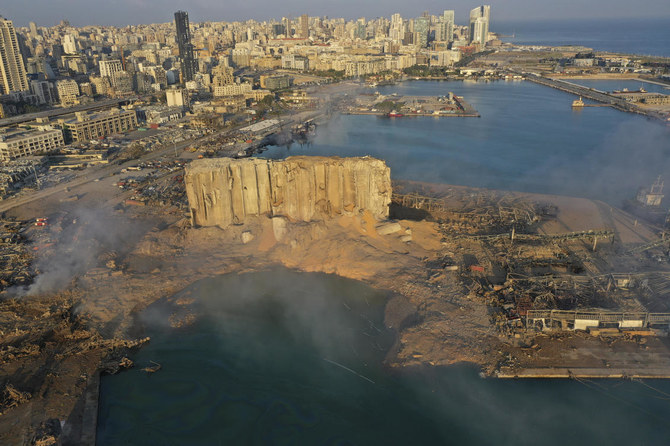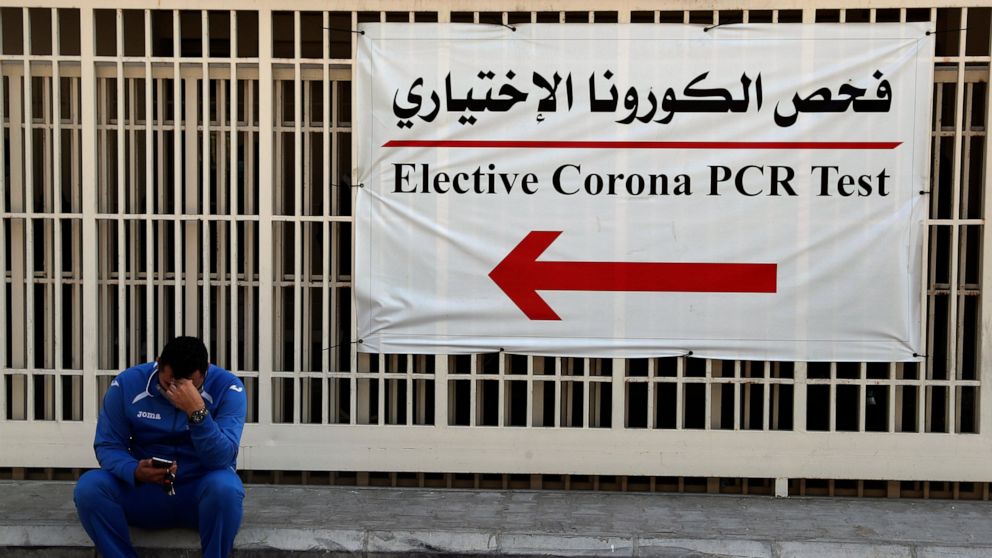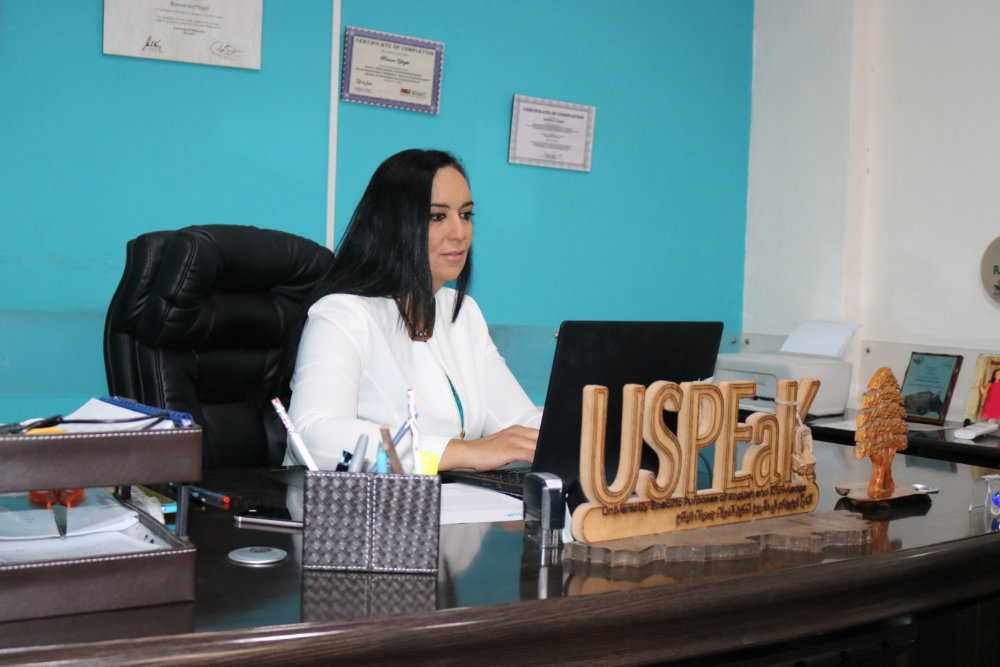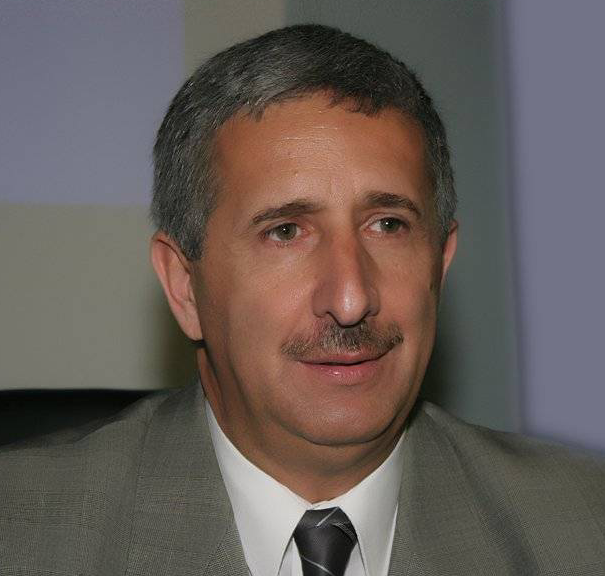
by AP -- BEIRUT: Lebanon’s highest court said Monday the prosecutor investigating last year’s massive explosion at the Beirut port that killed dozens and injured thousands can resume his work after a three-week pause following legal challenges to his authority. The Court of Cassation’s decision gives the green light to Judge Fadi Sawwan to question officials and civil servants over the Aug. 4 explosion of nearly 3,000 tons of ammonium nitrate, a highly explosive material used mostly as a fertilizer. The blast killed more than 200 people, injured over 6,000 and damaged entire neighborhoods in the capital. The court’s decision, reported by the official state news agency, is likely to ease concerns by members of the public who feared the investigation might end given Lebanon’s decades-long culture of impunity.
Nearly 30 people, most of them port and customs officials, have been arrested since the blast. Last month, Sawwan filed charges against caretaker Prime Minister Hassan Diab and three former ministers, accusing them of negligence leading to the deaths of hundreds of people. Diab and the three former ministers did not show up for questioning following the charges. The summoning sparked concerted criticism from most of Lebanon’s top politicians and the militant Hezbollah group, which urged Sawwan to reconsider his decision, describing it as politically motivated. Sawwan paused his investigation to allow him to respond to accusations that he violated legal and constitutional procedures by summoning for questioning Diab and the three former ministers.

By SARAH EL DEEB and FADI TAWIL Associated Press- BEIRUT -- Lebanese authorities tightened a nationwide lockdown Monday, including an 11-day, 24-hour curfew, amid a dramatic surge in coronavirus infections and growing criticism of uncoordinated policies many blame for the spread of the virus. News of the restrictions to be implemented starting Thursday morning sparked panicked grocery buying as people lined up outside of supermarkets to stock up, raising fears the crowds could further spread the virus. Lebanon had only just announced a nationwide lockdown last week. But many, including the health minister and officials on a government committee, considered it to be too lenient because it exempted many sectors, such as florists, plant nurseries and factories. Hospitals, meanwhile, were running out of beds amid rapidly multiplying COVID-19 cases.
Critics have said uncoordinated and hesitant policies wavering between relaxing restrictions and shutting down were behind the failure to contain the virus. For instance, despite a rise in infections, the government relaxed restrictions ahead of Christmas and New Year’s celebrations, hoping to boost a crumbling local economy as thousands of Lebanese expats arrived in the country. Bars and nightclubs, which had been ordered shut for months, were allowed to open. Daily infection rates have since hovered above 3,000, hitting an all-time high of over 5,000 last week. Doctors and experts say the extent of the spread has yet to be felt, predicting numbers will skyrocket in the coming days, overwhelming health facilities in the country of nearly 6 million. Despite the nationwide lockdown announced last week, a soccer match was allowed to take place in the northern Tripoli province on Sunday with an audience and was aired on TV.

by ALICIA BULLER - arabnews.com -- BEIRUT: Lebanese women have long fought against gender discrimination in the system. While activists have made great strides this year in terms of political and social awareness, national legal protections from domestic violence and sexual assault remain inadequate. The country also has a weak framework for basic women’s rights, especially in matters such as divorce, property rights and responsibility for children after divorce. Rawan Yaghi, a former teacher based in Lebanon’s northeastern region of Baalbek, set up social enterprise USPEaK in 2009 with the aim of giving the country’s citizens a voice, particularly its women. The organization’s main objective is to create a democratic community that engages citizens through education. “In my earlier career as a teacher, I was very active in social activism,” said Yaghi. “I was invited to International Women’s Day in Washington. I saw women being celebrated and honored for the enterprises they had started and thought, ‘oh, I can do that.’”
Yaghi registered USPEaK as an NGO in 2015. Since then, 2,600 women have been taught English and 1,200 have been taught about entrepreneurship. She has also overseen the education of about 10,000 Lebanese 7th and 8th grade students, who are taught a set curriculum based on themes such as citizenship and democracy. One of the main areas that USPEaK focuses on is teaching English. Yaghi believes the English language is one of the most important tools Lebanese women can have when seeking employment. “It’s like a passport. When they learn English, they’re able to access information that they are not usually exposed to,” she said. “They can know more about the media and the social work of others and they can get inspired by different ideas.”

Our sinceres condolences to the family of the Hero Massoud Achkar. You will be missed!
by lorientlejour.com -- Tilda ABOU RIZK -- Depuis ce lundi matin, Achrafieh pleure Massoud Achkar, affectueusement surnommé Poussy depuis le début de la guerre en 1975. Un des premiers et plus proches compagnons du fondateur des Forces libanaises et ancien président assassiné, Bachir Gemayel, Massoud Achkar est décédé à 64 ans des suites de complications dues au coronavirus, douze jours après avoir été admis aux soins intensifs du centre universitaire LAU-hôpital Rizk, suite à la détérioration de son état de santé. C’était le jeudi 31 décembre. Deux jours plus tard, samedi, une marche aux flambeaux a été organisée à son intention Place Sassine, suivie d’une veillée de prière devant le centre hospitalier. Le chef d'Etat Michel Aoun a rendu hommage au disparu. "J'ai perdu aujourd'hui un ami, uni à lui par l'amour de la patrie depuis de longues années", a-t-il regretté. "Le Liban a besoin aujourd'hui d'hommes comme lui, un combattant, un patriote, un homme d'honneur qui n'a pas fait de compromis sur la dignité, l'unité et la stabilité du Liban", a estimé le président, souhaitant "que Dieu ait son âme et console sa famille".
Avec la disparition de Massoud Achkar, Achrafieh perd un de ses principaux soutiens, une figure charismatique qui, quarante-six ans durant, a défendu inlassablement les mêmes principes souverainistes et maintenu le même discours politique en faveur d’un Liban souverain, indépendant et libre pour lequel il aura plaidé jusqu’au dernier souffle. Ce sont ces mêmes principes qui l’ont poussé à porter les armes alors qu’il était tout juste âgé de 19 ans, au début de la guerre. Avec Bachir Gemayel et plusieurs autres camarades dont nombreux sont tombés en cours de chemin sur les champs de bataille entre 1975 et la fin des années quatre-vingt, ils se sont engagés à protéger les quartiers chrétiens d’Achrafieh, Saïfi, Rmeil et Médawar face d’abord à l’alliance dite palestino-progressiste, puis à l’armée syrienne et enfin aux milices dominant la partie ouest, à majorité musulmane, de la capitale. Poussy Achkar était au cœur de la Résistance libanaise fondée par Bachir Gemayel qu’il a accompagné tout au long de son parcours : dans les rangs du parti Kataëb, puis avec la fondation des Forces libanaises, jusqu’à l’assassinat de Bachir en septembre 1982.
Khazen History


Historical Feature:
Churches and Monasteries of the Khazen family

St. Anthony of Padua Church in Ballouneh
Mar Abda Church in Bakaatit Kanaan
Saint Michael Church in Bkaatouta
Saint Therese Church in Qolayaat
Saint Simeon Stylites (مار سمعان العامودي) Church In Ajaltoun
Virgin Mary Church (سيدة المعونات) in Sheilé
Assumption of Mary Church in Ballouneh
1 - The sword of the Maronite Prince
2 - LES KHAZEN CONSULS DE FRANCE
3 - LES MARONITES & LES KHAZEN
4 - LES MAAN & LES KHAZEN
5 - ORIGINE DE LA FAMILLE
Population Movements to Keserwan - The Khazens and The Maans
ما جاء عن الثورة في المقاطعة الكسروانية
ثورة أهالي كسروان على المشايخ الخوازنة وأسبابها
Origins of the "Prince of Maronite" Title
Growing diversity: the Khazin sheiks and the clergy in the first decades of the 18th century
Historical Members:
Barbar Beik El Khazen [English]
Patriach Toubia Kaiss El Khazen(Biography & Life Part1 Part2) (Arabic)
Patriach Youssef Dargham El Khazen (Cont'd)
Cheikh Bishara Jafal El Khazen
Patriarch Youssef Raji El Khazen
The Martyrs Cheikh Philippe & Cheikh Farid El Khazen
Cheikh Nawfal El Khazen (Consul De France)
Cheikh Hossun El Khazen (Consul De France)
Cheikh Abou-Nawfal El Khazen (Consul De France)
Cheikh Francis Abee Nader & his son Yousef
Cheikh Abou-Kanso El Khazen (Consul De France)
Cheikh Abou Nader El Khazen
Cheikh Chafic El Khazen
Cheikh Keserwan El Khazen
Cheikh Serhal El Khazen [English]
Cheikh Rafiq El Khazen [English]
Cheikh Hanna El Khazen
Cheikha Arzi El Khazen
Marie El Khazen